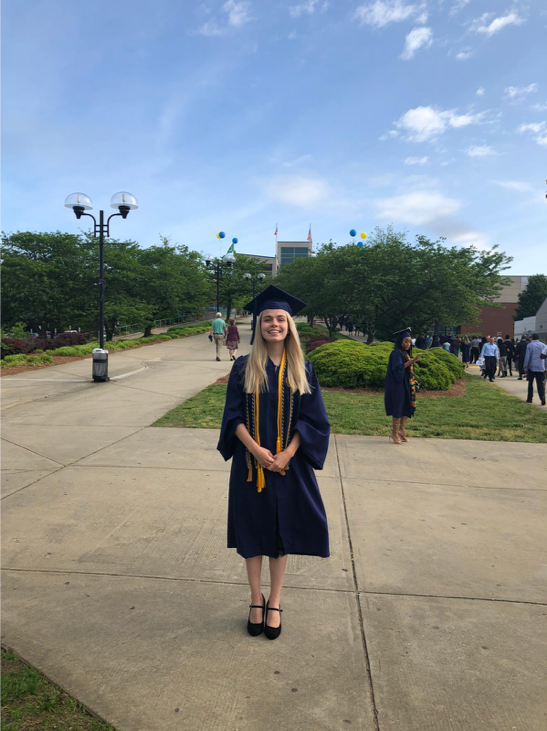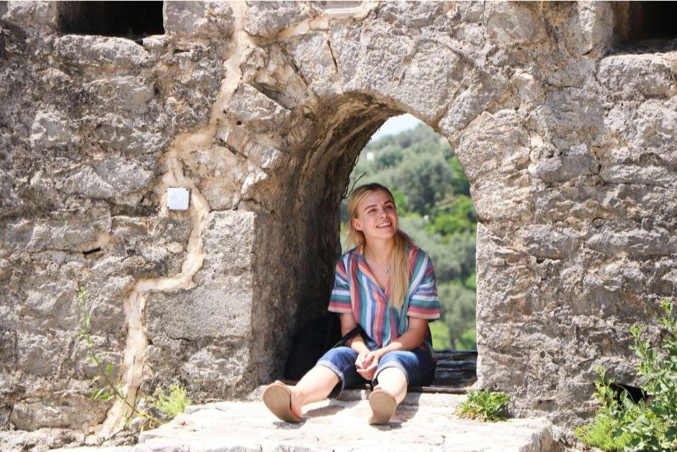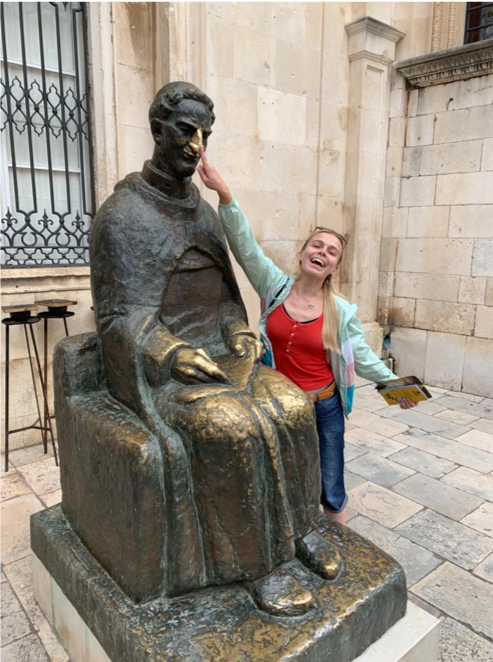
Following the Adventurous Path to Historic Times
Pictured: Anastasia Temkina at her graduation.
Anastasia Temkina is a current student at the University of South Florida, getting an MA in Anthropology. As a Russian immigrant, Anastasia came to the United States with a passion for history and wanted to dedicate her education to learning about the past. Alongside her course work, she has participated in two field school programs, letting her travel across the world.
In the summer of 2017, she traveled to Greece, to a small island called Kea, which is located in the Cyclades. Anastasia enrolled in the program through her college at the time, which was the University of North Carolina at Greensboro, where she earned her bachelor’s degree in Archaeology and Anthropology. During her 6-week stay on Kea, she did archaeological lab work such as working with various ancient ceramics, assessing their color, weighing and measuring them, and then going on to label them. She was most fascinated with a massive piece of ceramic that they found, which was a part of a large pot where grain and wine would have been transported.
Then, in the summer of 2019, she enrolled in a field school through the Balkan Heritage program on the American side, where she was given the opportunity to go to Montenegro. They visited the capital, Podgorica, where they excavated a Roman site. There, they found a gorgeous floor mosaic that once belonged in a rich, Roman house. Alongside the mosaic, she found animal bones, glass, metal pins, and even a Roman coin dated all the way back to the late antique period.
Pictured: Anastasia Temkina in Montenegro, Podgorica. Image courtesy of the Balkan Heritage.
Once Anastasia finishes her masters, she plans to obtain a PhD, while focusing her dissertation on the plague and disease management. So, the next place she wants to visit is a skeletal collection in Venice, Italy. There, located on one of the islands, is a lazaret which housed plague patients from the 15th-17th centuries. While there, she would study the skeletal remains.
However, this is not planned for any time soon. As a part of the PhD program, she must spend a year and a half completing her course work before she can travel to do any research. Alongside those limitations, there is a lot that is unknown involving the COVID-19 epidemic. Anastasia hopes that by the time it is time for her dissertation, this pandemic will ease so that traveling will be a safe option.
Anastasia is very interested in disease management, and how we can learn from the past. For her dissertation, she wants to study the plague to have a better understanding of how we can deal with disease outbreaks, such as what the world is dealing with currently with Coronavirus. As part of her study, she will test the methods of bacterial identification, assess the pathology on the skeletons and will then reconstruct life histories of these people to see which populations were more vulnerable to the infection. This information can be very valuable to our knowledge of epidemics as well. As they say, history repeats itself, and we can only learn from previous errors.
Pictured: Anastasia Temkina in Montenegro.
Once Anastasia gets her PhD, she plans on teaching Archaeology courses during college sessions, and doing independent research in the summers. With research comes travel and traveling to learn about ancient worlds is something that truly excites her. To learn more about her studies and excursions, visit her website for personal accounts of her trips.


